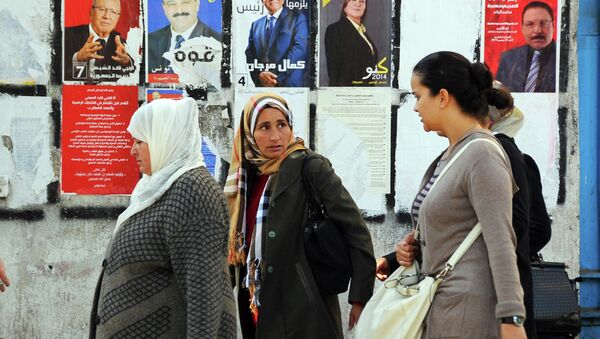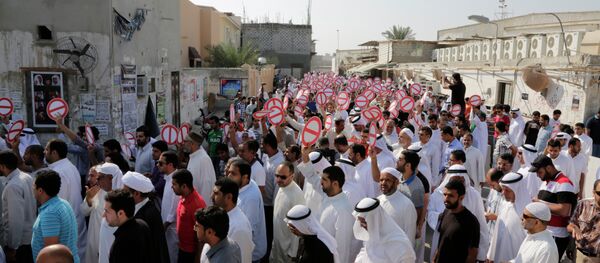MOSCOW, November 23 (Sputnik) — Tunisians are heading to over 4,500 polling stations to vote in the first presidential election since the ouster of the country’s previous leader in 2011 sparked Arab Spring uprisings across Northern Africa and the Middle East.
The poll is seen as the last step in a largely peaceful, but fragile transition towards democracy in Tunisia. “We were the first to enter into this cycle of change which they have called the Arab Spring. We will be the first (to make the transition) but others will follow,” Mehdi Jomaa, the country’s prime minister told AFP.
27 candidates are competing to become the next president of Tunisia, a largely ceremonial position at present, according to al-Jazeera. None of the candidates are expected to win in the first round of voting. The run-off is scheduled for December 28.
Until 2011, only two presidents had ruled in Tunisia since gaining independence from France in 1956. Habib Bourguiba, the “father of independence”, ruled the country until 1987, when he was deposed by Zine El Abidine Ben Ali. The latter was forced to resign in 2011 after violent protests, marking the beginning of the Arab Spring. Since then, Moncef Marzouki has been Tunisia’s interim president.
Marzouki along with Beji Caid Essebsi are believed to be the main contenders for the position. “It looks like Beji Caid Essebsi and Moncef Marzouki will respectively get the first and second spot in the first round of the presidential elections,” Mohamed Salah Ben Aissa, professor of public law at the University of Legal, Political and Social Sciences of Tunis, told al-Jazeera.
Essebsi, 88, of the secular Nidaa Tounes (“Tunisia’s Call”) is a seasoned politician, who served as Tunisia’s prime minister, foreign affairs’ chief and parliamentary speaker at various times since 1956. He enjoys 32 percent support, France 24 reported, citing a recent opinion poll. “Essebsi enjoys wide electoral support, backed by leftists and unionists. He also enjoys the support of the country’s long-established elites and those wanting a return to a more orderly era,” Ben Aissa asserted.
Essebsi has run on an anti-Islamist platform, promising to tackle unemployment and bring stability to the country plagued by extremism. Although Essebsi presents himself as an autocrat, he is often viewed as an embodiment of the old regime, which many do not want to see reinstalled.
“The old regime wants to impose itself on these elections especially after they won the most seats in the parliament,” Mohammed Souilmi, a bank employee, said, as quoted by Reuters. “I will be voting to put a stop to that,” he promised.
Marzouki, 69, a former human rights activist, has been running on a promise to protect the democratic gains of the 2011 uprising.
Tunisia’s main Islamist force Ennahda, which was defeated in the October parliamentary elections by Nidaa Tounes, has not put forward a candidate of its own. Party leaders explained that Ennahda wanted “to avoid deepening polarisation or dividing the country,” as quoted by the BBC.
Over 5.2 million people are eligible to take part in the election.


